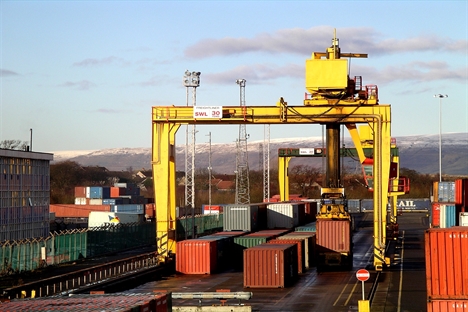05.04.16
How does freight fit in with rail devolution?
Source: RTM Apr.May 16
Philippa Edmunds, Freight on Rail manager, Campaign for Better Transport, discusses the recommendations from the Shaw Report and what this means for the freight sector.
The nervously awaited Shaw Report, which was buried in the spring Budget announcements on 16 March, was viewed largely positively as it avoided recommending radical privatisation or revisiting mistakes of the past such as Railtrack.
Furthermore, it was refreshing that freight was not an afterthought, as the Shaw Report recognised in its introduction the importance of freight and its customers which generate £1.6bn per annum for the UK economy. The report stated that Network Rail should place “the needs of passengers and freight shippers at the heart of rail infrastructure management”.
Freight route
The report recognises that rail freight crosses several routes on most journeys and recommends that a strong system operator function be maintained to co-ordinate timetabling across the network. It states that freight interests will be supported by the establishment of a ‘freight route’ on an equal standing to Network Rail’s other regional routes, whose role would be managing relationships between FOCs and other routes.
We would highlight that this virtual ‘freight route’, which will share some of the properties of the geographical routes, needs to be able to plan, develop and implement policies for freight as well as managing freight performance and promoting freight interests.
We strongly welcome the commitment to strengthen the freight team. We would also emphasise that whoever leads the ‘freight route’ needs to have equal standing with the geographical route managers who need to understand freight requirements, as do the train operating companies (TOCs). Both route managers and the TOCs will need to be incentivised to take freight’s interests fully into account.
Resolving devolutionary tensions
The report recommends that Network Rail retains the system operator role centrally, putting the needs of passengers and freight at the heart of capacity planning and investment. But at the same time, it states that to achieve this there should be a policy of devolution towards greater decision-making at Network Rail route management level, which is somewhat contradictory. Therefore, the fact that there is this inherent tension between devolving powers to the routes and retaining a Network Rail national network-wide perspective has to be resolved.
Freight has to live with devolution as it is a cornerstone of the report’s conclusions, especially as it calls for an intensification of Network Rail’s existing plans to devolve responsibility to the regions alongside the political devolution taking place across the country. It remains to be seen how a strong system operator role can function for freight within any new or revised model and how freight interacts with rest of network.But freight users will have to negotiate a model which works for them, even though devolution remains difficult for the sector. The rail freight operators have contractual relationships with Network Rail but they cannot manage all different relationships across geographical routes. Therefore, it is essential that the routes are incentivised to include freight.
It was also important that the ‘freight route’ was supported by a ministerial statement because Shaw is only a report and, therefore, not binding, so Network Rail and the government could ignore it.

Questions remain unanswered
Headline questions remain as the report did not say anything about the national charging framework for freight. Nor did it clarify co-ordination across routes during possession planning, which is absolutely essential for freight and is currently done by Network Rail who manages its engineering works centrally in an efficient and fair manner. So a workable solution will need to be found to make sure that freight services get viable diversionary routes with the correct gauge and speeds.
Freight operators accept that diversionary routes may have to be longer but if there is more pressure for mid-week night possessions, freight must be given commercially viable alternatives so that they can meet delivery schedules. In the case of the Lamington blockage, Network Rail was not able to offer a gauge cleared alternative route for several days.
Freight must be at the heart of route planning, so its end-users must be factored into the route plans. But how will the different types of freight customers’ voices be heard and what ability will they have to influence a geographic route? Retail and bulk commodity customers need to be consulted and have a relationship with Network Rail, which needs to be translated into an implementation plan. Shipping lines are not interested in how the rail network works but their requirements still need to be heard. Where does the Network Rail Freight Route Utilisation sit with revised structures?
As always, the devil will be in the detail which will need to be negotiated as the key factor will be how the implementation plan works. The report’s aim is for clear alignment with Network Rail’s long-term geographical devolution alongside the government’s political devolution of power to the regions, resulting in regionalised decision-making.
So how will the co-ordination of possession planning across routes work if the plan is for work to be done locally? The report says a lot about empowering the routes, but we still need a national network so cross cutting responsibility is crucial.
Tell us what you think – have your say below or email [email protected]